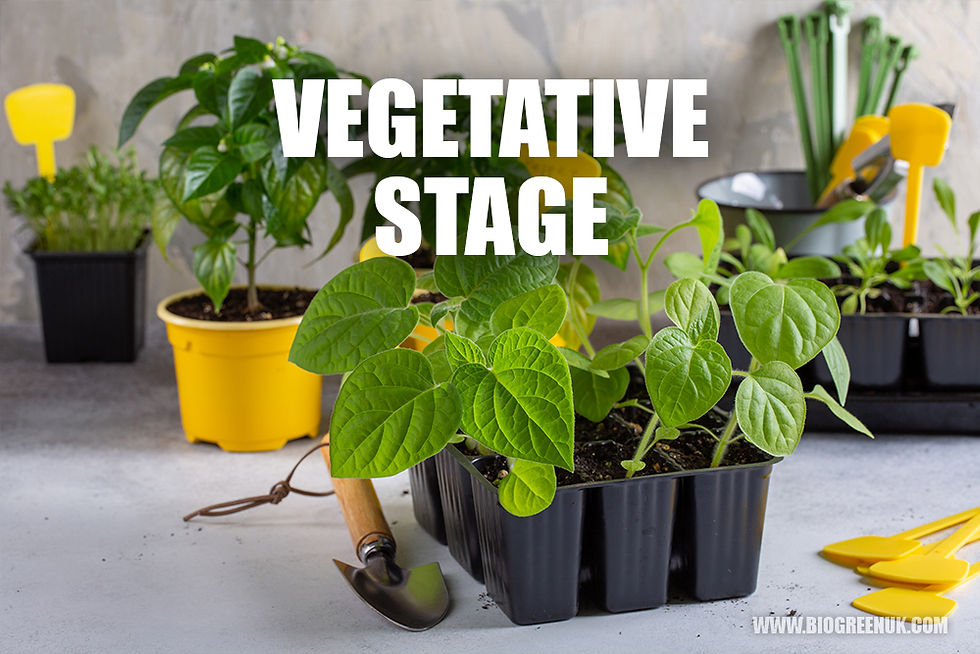Organic vs. Mineral Plant Nutrition - What is the difference, advantages and disadvantages
- monica9147
- Oct 27, 2021
- 3 min read

■ Firstly, let’s make clear what the differences between organic, inorganic and Minerals are.
— Organic:
A material that contains carbon with hydrogen and oxygen. Organic materials are usually derived from plant or animal waste products.
— Minerals:
Substances and ingredients in fertilisers that are sourced from a naturally occurring substance and often chemically modified elements. There can be confusion, as although these elements are often man made, they are still derived from a natural source.
— Inorganic:
Often a man-made fertiliser that does not contain carbon, and is not derived from any living matter.
■ Do plants know where their nutrients come from?
Plants can only absorb chemically altered nutrients. Plants cannot distinguish between organic or synthetic ions. The difference comes from the way the plant receives the nutrients. Inorganic or minerals are taken up by the plant in water, whereas organic nutrients need to be broken down by microorganisms before it becomes available to the plant.
This means that artificial nutrients and mineral nutrients are taken up and absorbed by the plant a lot faster than organic nutrients. This time difference can lead to organic nutrients being over fed to plants and can result in nutrient burn. But in return the opposite can happen, where the slower intake can stop over feeding (confusing right).
■ So, are minerals not natural?
Yes, they are still considered as a natural source for plants, although they go through a
manufacturing process, they are derived from natural sources, and the process creates a
more effective product, readily bio available for the plant. The process creates a mineral
that is soluble, stable and efficiently taken up by the plant.
■ Is there an advantage to mineral/inorganic or organic nutrients?
When growing in containers, indoor or in a greenhouse space, there are definite advantages to mineral based nutrients. Due to the high levels of nutrient availability, certain strains of plants thrive from this type of fertilisation, especially fast-growing varieties of plants.
The same can be said for plants growing in a hydroponic or soilless system. Without the presence of soil the microbial life needed to break down the organic nutrients does not necessarily thrive in this environment, making mineral based nutrients a strong choice. With fully automated systems, mineral based nutrients are essential.
Now it’s not all about mineral based nutrients, organics have their place.
Although never scientifically proven, organic crops are said to have stronger flavours. When growing outside, organic nutrients also have many benefits to the environment.
Organic growing also benefits the plant in the long term, with the organisms used to break down the feed forming a symbiotic relationship with the plant allowing the plant to increase its nutrient uptake.
Organic feeds also have many benefits when growing in soil, helping to keep the soil fertile, well aired, leading to strong root growth and a healthy soil. With the feed being broken down first, the plant is then able to get the right feed at the right time.
Organics offer a guaranteed “clean” product at the end, but the plant is still taking up the same nutrients, they are just available in different ways when fed to the plant.
■ Can you use Organic and Mineral at the same time?
Yes! As they both have their positives and negatives, combining the two can produce amazing results. Biogreen nutrients has done the hard work for you, our range contains organic products when they are needed, utilising their soil and rooting benefits for you.
Biogreen Biozym is one of our organic products, designed to promote a healthy soil balance and structure, it also stimulates microbiological life to break down organic matter in the soil for the plant.
Combine Biogreen Biozym with another of our organic products, Biogreen X-Rooting, to promote a healthy plant root system. Using Humic acids, organic minerals and beneficial bacteria this product is perfectly suited for cuttings and all through the plant's grow cycle.
Finally, we have Biogreen Garlic, our 100% biological, organic pest control. The main bioactive component extracted from garlic is Allicin.
Allicin works as the first mechanism of defence against insects and fungi. It works preventively against various pathogenic fungi such as mould, mildew, nematodes, snails, beetles and insects such as spider mites, thrips, aphids, fungus gnats, whitefly and more.
When you combine these products with the rest of our range, you have the perfect mix of organic and 100% raw material-based nutrients. All our products' ingredients come from the best natural resources, providing exceptional quality. And we are totally PGR free.




Comments